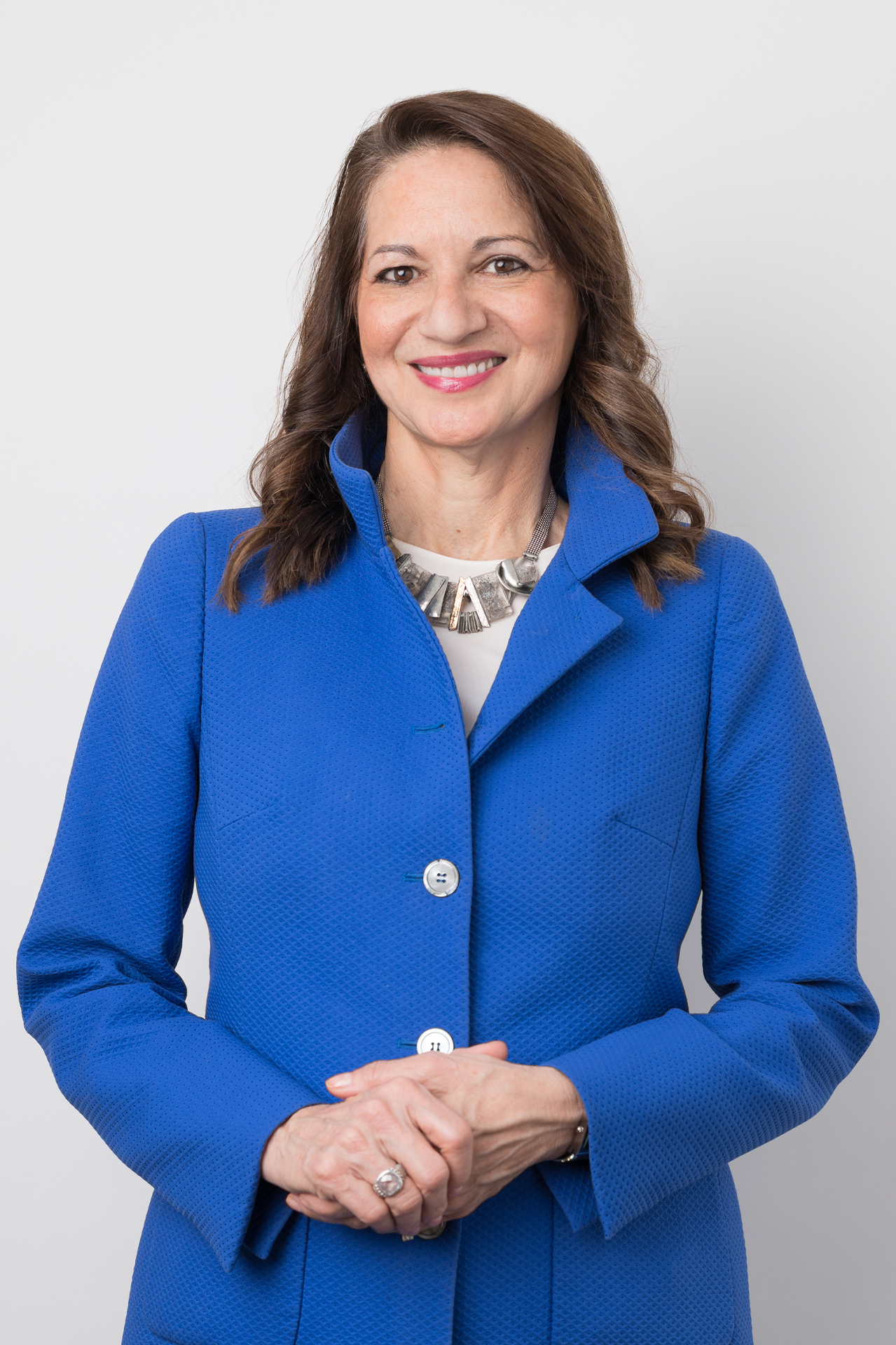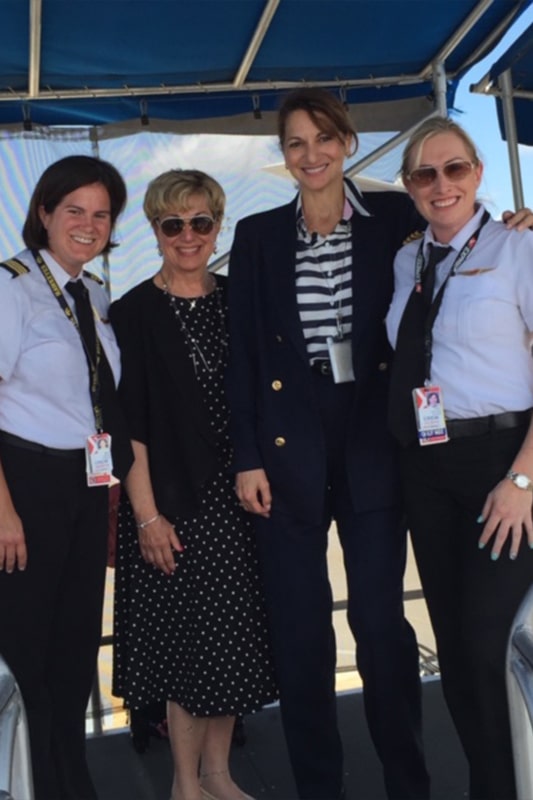
Alex
Marren
SVP + President of the Aviation Industry Group, ABM
“My mother was my role model and inspiration,” says Alex Marren. “But she also had a really hard life. And maybe to protect me from disappointment, she’d say things like, ‘Alex, you can’t do that. It’s special. You have to know people to do that.’ And I would say, ‘Mom, I can do it. I know I can.’ And then I would.”
She had many chances to prove her point: Being the first person in her family to go to college. Succeeding in the male-dominated world of aviation operations. Being selected by United Airlines to open their flight operations in Greece—and becoming their first female country manager. Running United’s globe-spanning Network Operations Center that coordinates over two million flights per year for the airline, 24 hours per day, 365 days per year.
Along the way, Alex didn’t spend a lot of time worrying about being the only woman in the room—which she was, often. “In a way, I didn’t register that was happening,” she says. “The question for me in every role was, ‘How do we move forward? How do we do a great job?’”
Her path in aviation started early. Growing up in a large, first-generation Greek-American family, Alex says she was fascinated with travel and connectedness from a young age. A flight to Greece as a youngster to visit relatives sparked a lasting interest in the science of flight. At Harvard, Alex steered herself toward a career in the sciences. But when her father died while she was in college, she paused and reconsidered. Redirecting herself, Alex switched her major to History, and wrote her senior thesis on the Greek immigrant experience in the U.S.

Yet her interest in aviation persisted. After graduation, she landed a job at airline start-up People Express. Their management philosophy: Learn every aspect of running an airline. Alex trained as a flight attendant, did customer service, worked the control room, on the ramp and in ground operations—”Everything except flying the plane,” she says.
When People Express merged with Continental Airlines in 1987, Alex was already in Chicago and she made her way to United Airlines. Over the next 27 years with United, Alex’s catchphrase was, “Yes, I can.” Whatever role she was asked to fill, Alex took it on.
“Most of my career seemed to come from people saying, ‘Alex we would like you to try this,’” she smiles. At one point she served as assistant to the Vice President for O’Hare Airport, managing the budget. But she also took a rotation working on the ramp—“One of my most formative experiences in aviation,” she says. She oversaw loading the mail and cargo onto flights and even tackled the de-icing bucket, prepping planes for flight in wintry weather.
“It was such a great experience,” she says, “because you learn everything and you have to get the guys working those jobs to accept you as a peer.” At that time, Alex figures that approximately 3,000 people worked at O’Hare for United. Of those, fewer than 10 of the people in management were women.
On September 11, Alex was in Chicago serving as Director of Customer Service Planning when terrorists struck. Two of the hijacked planes that day were United’s. Alex had previously said “yes” to a role running United’s Global Response Center Elk Grove Village, IL. She immediately began coordinating teams dealing with the FBI, United crews, the victims’ families, and bringing stranded passengers home. And she didn’t leave—except to crash at the flight attendants’ dorm occasionally—for three weeks.
Not long after, United entered a period of furloughs and bankruptcies as the company worked its way out of financial difficulty. Alex was picked to be a VP of Operations for United airports in the eastern half of the U.S., while another female colleague oversaw United’s airports in the western half of the country. One of her final assignments at United was SVP of Network Operations and United Express. On her watch, the airline merged vast legacy Network Operations Centers in Elk Grove Village and Houston into a new home in the Willis Tower skyscraper, all while maintaining total control over all flights in every corner of the world. This project also oversaw the transfer of 1,200 Continental employees from Houston and UA employees to downtown Chicago as part of the transition.
Although the entire years-long project went off almost without a hitch, it became clear after the Continental-United merger was complete that Alex had risen as far as she could at United. She explored options and took on new leadership roles at ExpressJet and then Hertz. Today she is President of ABM’s Aviation Group, providing aviation services to over 10 airlines at 70 airports worldwide.
“I was always focused on objective results,” she says. “But the higher up you go, the more you get into the competitive aspects. There are pockets of bias everywhere. I learned a lot about influence, and how things sometimes get decided before the meeting to ‘decide it’ actually happens. I had to learn how to work that and figure it out. But you can’t let it stop you.”
She thinks the world is changing as more women move into all industries, including the male-dominated ones.
“Women now are more entitled, and in a good way,” she says. “They’re saying and doing things that never would have worked in my world 20 years ago. But I think the playing field is getting leveled. I mostly went it alone. But I get excited now when I see somebody speaking up for themselves in a way I could not have.”
She likes what women bring to leadership. “I think we’re good at creating an environment where everyone’s there to help everyone else succeed,” she says. “We’re more about relationships—more collaborative.”
Yet it still takes grit. “You cannot give up,” says Alex. “Sometimes people try something, and if it doesn’t work out, they give up. And society does that to women, too, I think—telling them, ‘That’s not your place.’ But you can do it. You can. I’ve spent my whole life proving that.”